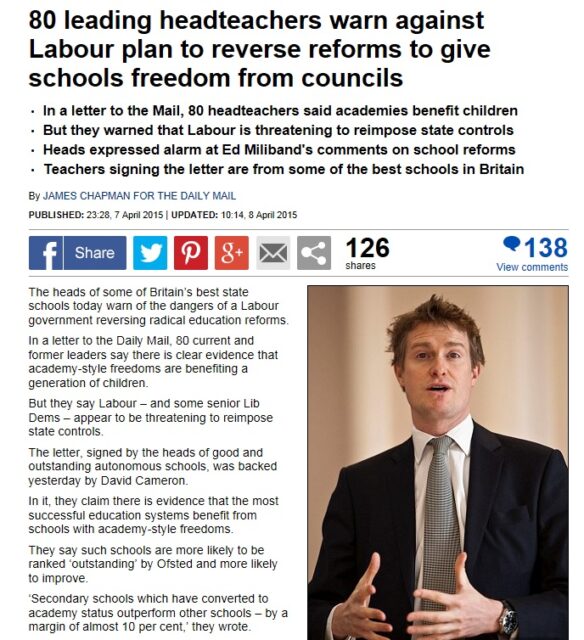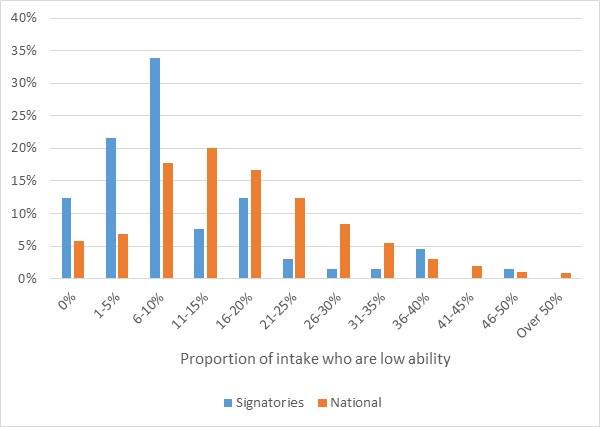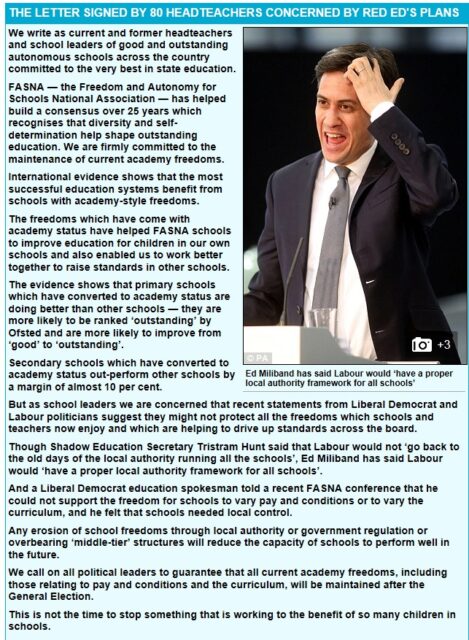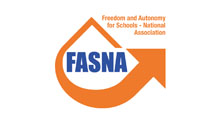Eighty school leaders from some of the country’s best-performing schools have today questioned Labour plans to ‘reverse’ academy freedoms – saying “it’s not a time to stop something that is working to the benefit of so many children”.
But analysis by Schools Week suggests the schools represented by the leaders may not extend their benefit to all children, particularly those at the bottom of the attainment scale.

In an open letter, published in the Daily Mail today, the leaders said they are concerned that Labour and Lib Dem politicians “might not protect all the freedoms which schools and teachers now enjoy and which are helping to drive up standards across the board”.
It added: “We call on all political leaders to guarantee that all current academy freedoms, including those relating to pay and conditions and the curriculum, will be maintained after the general election.”
The letter was organised by the Freedom and Autonomy for Schools – National Association (FASNA). It is described as the only national forum for heads, governors and business managers seeking greater autonomy.
Its chair, Tom Clark CBE, is the first signatory on the list. He is described as the former principal of George Spencer Academy, in Nottingham.
Performance figures for the school show that last year 76 per cent of its pupils achieved five A*-C GSCE grades, including English and Maths – some way above the national average of 53.5 per cent.
But of the 224 pupils, only 18 (eight per cent) were classed as “low attainers”. A total of 95 (43 per cent) were high attainers and 109 (49 per cent) middle attainers.
Another signatory is Roy Blackwell, clerk to foundation and governors at United Westminster Schools London, which includes Grey Coat Hospital. It is the school chosen by Michael Gove and David Cameron for their daughters.
It had just six pupils (four per cent) in the low attaining category. The majority of pupils, 86 (57 per cent) were in the high attaining bracket.
Schools Week revealed last month that the school asked parents for money when offering them a sixth form place.
Parmiter’s School, in Watford, had five low attainers (three per cent) in its cohort, compared to 133 high attainers (73 per cent). Its head Nick Daymond also signed.
When presented with the figures by Schools Week, FASNA chief executive designate Peter Beaven said: “FASNA remains committed to advancing school autonomy as this has been shown, both here and internationally, to improve standards for all pupils irrespective of their ability.”

He said the highlighted schools accepted children irrespective of their ability and, while they may have low numbers of low attainers, they make above expected progress.
“These schools do not select, [they] work with the children they have,” he added.
He pointed to schools on the list which have higher intakes of low ability pupils, including Haywood Academy (24 per cent), Biddulph High (20 per cent), both in Staffordshire, and Priory Community (17 per cent), in Weston-super-Mare. All those schools, he said, also have above-average ‘best 8’ progress scores.
He added FASNA has “all kinds” of schools in its membership and the 80 were those available during the Easter holidays to sign the urgent letter.
–
Claims over success of ‘autonomy’ in dispute
The letter’s claim that schools converting to become academies are outperforming other schools have been disputed.

The letter states: “The evidence shows that primary schools which have converted to academy status are doing better than other schools — they are more likely to be ranked ‘outstanding’ by Ofsted and are more likely to improve from ‘good’ to ‘outstanding’.
But Martin Campbell, anti free-school campaigner, said academy converters are often outstanding before they convert.
“Their outstanding is nothing to do with becoming an academy,” he said. “Conversion is not what made them outstanding. It’s because they were already and are outstanding schools.”
He also said other types of academies are underperforming – including mainstream free schools and UTCs.
“If you apply this dodgy logic to academy sponsors – who are taken on while they are underperforming – then schools should be taken back into the local authority schools.”
The letter also claims that Ed Miliband said “Labour would have a proper local authority framework for all schools”.
Labour’s position since 2013 has been to extend the freedoms of academies to all schools, without requiring the schools to convert to academy status.
_
Who are FASNA?
The letter was organised by the FASNA which campaigns for a smaller government, less bureaucracy and employer flexibility.
The association also wants a simplified “fair” admissions code and a “transparent” national funding formula.
Former education secretary Michael Gove spoke at the association’s 20th anniversary conference in 2012. He said the work done by the association had helped “give children in the most disadvantaged circumstances – those most in need – the most damaged victims of the failed ideologies of the past – access at last to a culture of excellence”.
The group says it can trace its origins back to 1992 when the Association of Head Teachers of Grant Maintained Schools was formed.







I’ve finished the analysis for you! I’ve looked at the % of low ability pupils in these primary and secondary schools who have signed the letter (not the 3 special schools and there are a few trusts where I haven’t managed to identify who they are representing). You can see that they are quite an unusual bunch of schools! Many grammars and highly selectives.
Signatories National
0% 8 1015
1-5% 14 1198
6-10% 22 3117
11-15% 5 3516
16-20% 8 2937
21-25% 2 2163
26-30% 1 1459
31-35% 1 950
36-40% 3 517
41-45% 0 335
46-50% 1 171
Over 50% 0 151